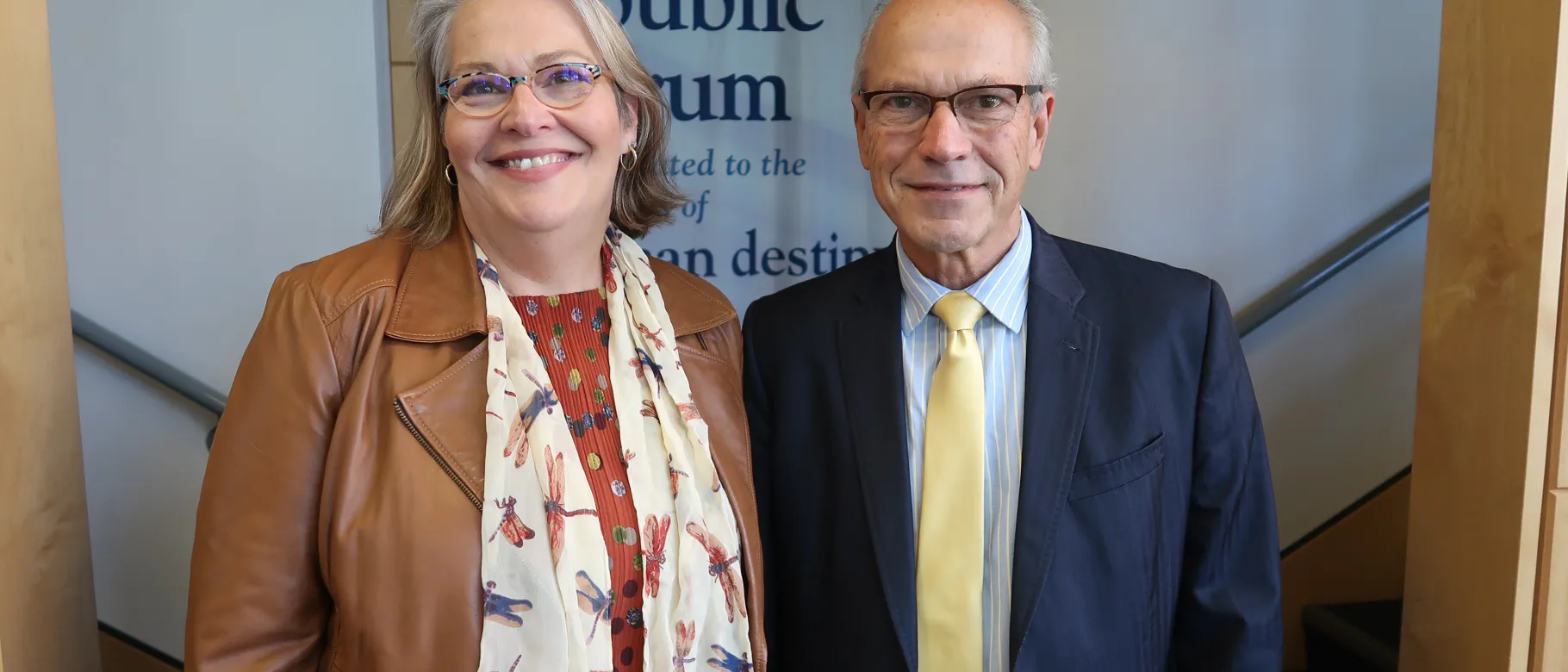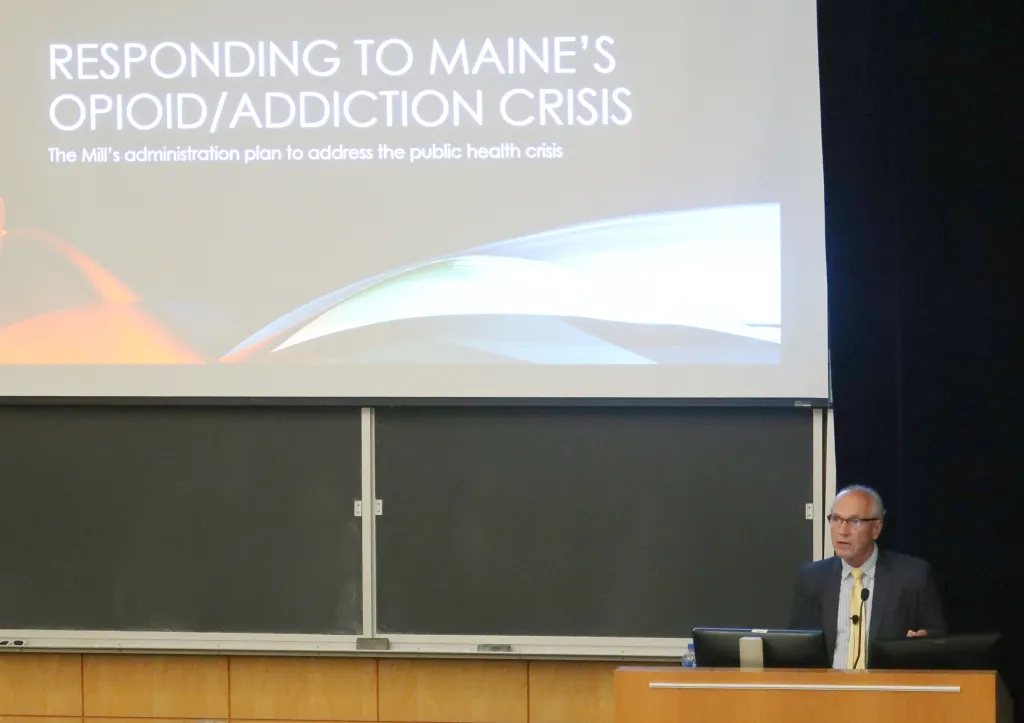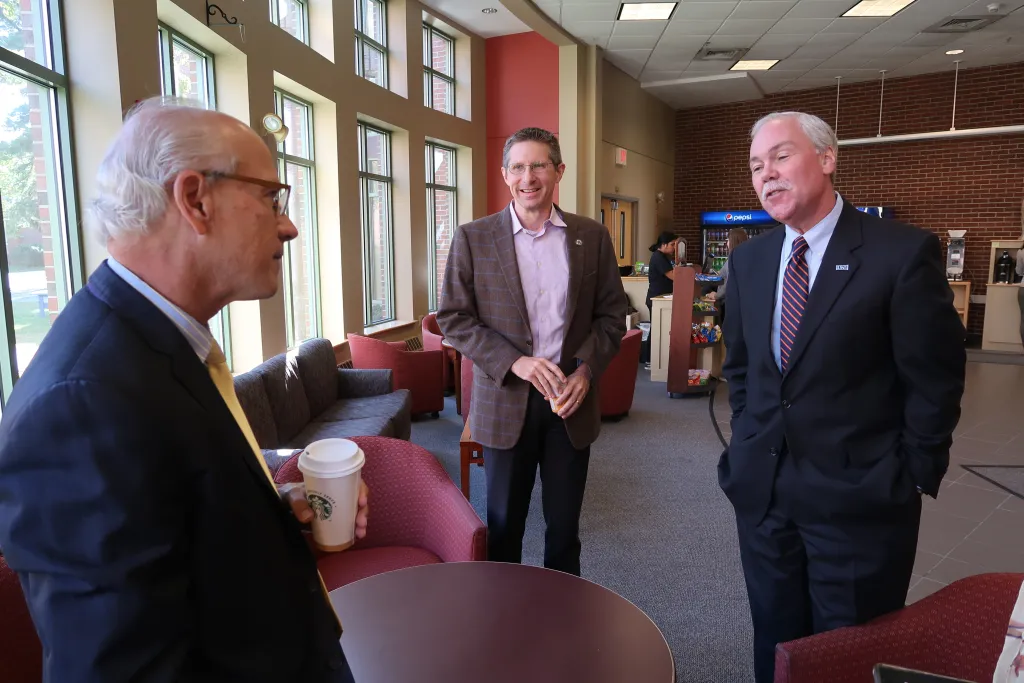Maine’s director of opioid response brings governor’s message of hope and recovery to UNE

Gordon Smith, Esq., Maine’s director of opioid response, recently spoke to a crowd of students and faculty members from the physician assistant and pharmacy programs. His talk was held at the Westbrook College of Health Professions Lecture Hall.
“My job is to break down barriers, get people pulling in the same direction and to deliver the governor's message of hope and recovery,” Smith said.
According to Smith, Governor Janet Mills’ goal in combating the opioid epidemic is to take a series of actions in the areas of treatment, intervention and harm reduction.
“It is all built on the foundation that substance use disorder is a chronic illness and needs to be treated like one,” Smith stated.
Smith says the time for aggressive steps to fight the epidemic is long overdue.
“The governor and I both believe that the response, to what many people consider the public health crisis of our time, has been completely inadequate,” he explained. “The only effective thing the state has done is limit opioid prescribing for pain. We’ve done that quite effectively, but in terms of prevention, treatment and harm reduction, we’ve had a very weak response.”
Moving forward, Smith says UNE and its students can play a big role in helping to curb addiction.
“The connection between UNE and health care is pretty awesome,” Smith commented. “All of those schools here have a piece of this issue. Whether its physician assistants or nurse practitioners, they’re going to have to find that appropriate balance between taking care of people's pain but not over prescribing.”
Smith says the biggest barrier to people getting treatment is the stigma associated with addiction. He says it makes a big difference when describing people as having substance use disorders rather than calling them drug addicts.
“Most of the students here probably understand that already, but they need to help us deliver that message to their homes, churches, colleagues and to their friends,” he said.
Smith says he and the governor are beginning their work at a time when there are signs of hope, but he concedes there is still a lot of work to be done in this area.
“We still lose somebody in the state almost every day, and we still have hundreds of babies born to mothers who are using drugs every year; but overall overdose deaths are coming down, the number of substance affected babies is declining and there are millions of successful recoveries across the country,” he noted.

